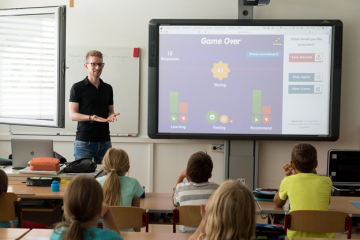Did you know that children can improve their writing and speaking fluency, as well as their vocabulary, by playing word games, which are not only fun but also an effective method of teaching new vocabulary to them?
Many word games are constructed on the foundation of semantics and phonological skills, both of which are essential for children to read and correctly sound out words.
For instance, according to a study published in the Journal of Educational Psychology, children who are encouraged to play word games in their early years develop better reading comprehension skills than children who do not play them with their parents.

How do you start if you want to engage your youngster in playing word games? The good news here is that, nowadays, word games can be found in various settings, including classrooms, libraries, and online, whichever is the most convenient way for you. Winter is the perfect time for your child to learn by participating in word games that are interactive, interesting, and fun.
In this article, we will be delving into the many benefits of using word games to enhance children’s vocabulary and language proficiency and improve their fluency.
The Importance Of Word Games For Improving Vocabulary
The concept of word games as a tool for expanding one’s vocabulary can be traced back to how they encourage language acquisition in young children. For instance, Scrabble and Text Twist are two classic word games that many youngsters enjoy playing, where they are encouraged to think creatively and critically about language through play to guess the correct word and win in the game.
If they get to a dead end while playing the game or if they are left with all vowels or odd letters, you can let them use an unscrambled words website helper to get a little hint when they get stuck and let them beat you while learning a few new words along the way.
Such games encourage children to analyze and manipulate letters to form words, which assists in the development of the children’s phonological awareness and phonics skills. Pediatricians are well aware that children who regularly participate in word games show signs of increased vocabulary development and improved reading skills from an early age, which is why they encourage parents to start playing them early to help their kids improve their vocabulary skills.
Challenging Word Games For Better Language Proficiency
Children are encouraged to think critically and creatively about language through the use of word games, which are designed to be challenging. Children benefit from playing word games because it allows them to meet and learn new vocabulary words, which in turn helps to expand their lexicon.
As a result, they are better able to internalize the rules and structures of language due to the process of actively engaging in and manipulating language facilitated by word games. This ultimately leads to an improvement in the children’s language proficiency.
Boosting Your Child’s Language Development Through Word Games
Adding word games to your child’s education can be a pleasurable and uncomplicated way to assist them in expanding their vocabulary and enhancing their language abilities. Including word games as a regular activity in your child’s routine can efficiently accomplish this goal. For instance, you could schedule a certain amount of time each day to play word games like Scrabble or solve a children’s crossword puzzle together.
Moreover, even if English is not your native language, but you want your child to speak it from an early age, you can add playing English word games to your ESL activities list for this winter to make the learning process more interesting for your young one. Children will have much more fun learning a new language if participating in such activities.
Final Thoughts
To summarize, playing word games is an efficient and entertaining method for expanding your kids’ vocabulary and enhancing their language abilities. In addition, these activities promote language learning by building phonological awareness and phonics skills, providing opportunities for children to meet and learn new vocabulary words.
In addition, word games can be a valuable tool for parents and other caregivers to support their child’s language development and provide a solid foundation for their child’s future participation in writing and speaking activities.


